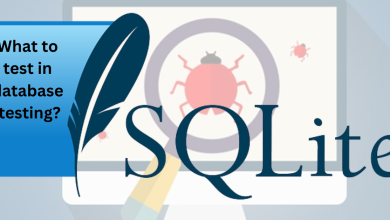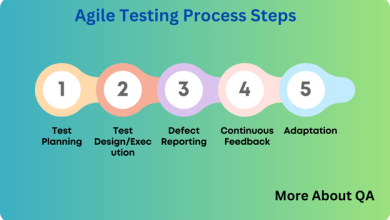Introduction
Are you getting ready for a senior QA (Quality Assurance) job interview? And looking for “QA Interview Questions and Answers for Experienced”. Are you curious about the questions you might face and how to answer them clearly? You’re in the right place! Here, we’ll give you a quick rundown of common senior QA interview questions. The blog provide straightforward answers to help you succeed in your interview.
There could be multiple responses to the same question as these are general questions. Each person may approach them differently. When evaluating my answer, you can compare it with the one I provided earlier. It’s important to note that it might be challenging to satisfy someone with these questions. Some times hey already have a fixed answer in mind, as they may steer the conversation towards their expected response.
QA Interview Questions and Answers for Experienced
We’ve put together a set of common QA interview questions and detailed answers to help you succeed. Let’s explore QA interview essentials together.
Section 1
Q1: How would you handle a situation as a senior QA when you join a team. There is a senoir QA in that project and he is taking credit for your work?
Answer 1: I would address this issue through private communication with the team members. I will look for a resolution that promotes collaboration and clarifies roles and contributions.
Q2: What approach would you take when a junior QA is involving you in a project. Though you are senior to them. He is taking advantage of being senior in the project and assign their tasks to you? As they are senior from you in that project.
Answer 2: I’d initiate a discussion to understand their reasons and provide guidance as needed. I will be encouraging them to take ownership of their tasks while mentoring them when necessary.
Q3: As a Test Manager with two juniors and two seniors on your team. What steps would you take to address poor overall performance?
Answer 3: I’d analyze the root causes, identify training needs, and implement necessary changes to improve performance. Coaching, clear expectations, and continuous feedback would be essential.
Q4: In a scenario where either you or your junior could be fired due to collective poor performance. How would you navigate this situation?
Answer 4: I’d work collaboratively with the junior to address performance issues, demonstrate commitment to improvement, and communicate transparently with management. I will prepare a plan and will presenting that for resolution.
Q5: How do you manage a situation where you receive builds from the development team at the end of the day. It has become a recurring culture?
Answer 5: I would engage with the development team to understand the reasons and suggest process improvements, such as setting earlier build delivery deadlines, to ensure adequate testing time.
Q6: As a Test Manager, how do you handle a situation where you receive a build for testing on the day when the Sprint is closing?
Answer 6: I’d prioritize critical test cases, focus on high-priority features, and ensure showstopper bugs are identified and reported immediately. A retrospective meeting post-sprint would address process improvements.
Q7: What would be your approach when a developer rejects a bug that you’ve mapped to the requirements, and even management supports their decision?
Answer 7: I’d engage in a detailed discussion with the developer, presenting evidence and explaining the alignment with requirements. If the issue persists, I will escalate it to higher management or the product owner.
Q8: How would you respond when a developer shouts at you upon reporting a bug to them?
Answer 8: I’d remain calm and professional, seeking to understand their concerns and discussing the issue constructively. If needed, I would involve higher management to mediate.
Q9: When you’re in a hurry to test a release but lack time, aside from exploratory testing, what other testing approaches would you consider?
Answer 9: In addition to exploratory testing, I’d employ risk-based testing, focusing on critical functionalities, and possibly use test automation for regression testing.
Q10: How would you effectively communicate with a team comprising members from different cultural backgrounds about the build?
Answer 10: I’d prioritize clear and concise communication, encourage open dialogue, use video conferencing or documentation for language and cultural bridging, and promote cultural sensitivity and respect.
Section 2
Q11: What strategies would you employ to write test cases for software when you have no documentation or mock-ups to work with?
Answer 11: I’d analyze the software’s functionality, reverse engineer from code, research competitors, and engage in discussions with developers and product owners to gain insights.
Q12: Despite feeling confident in your communication skills after 15 years of experience, how would you respond if asked whether you’d like to improve them?
Answer 12: I’m open to improvement and continuous learning, so I’d welcome opportunities for training, workshops, or mentorship to further enhance my communication abilities.
Q13: What specific improvements have you made in the last six months?
Answer 13: I focused on refining my test automation skills, completing a certification course in a relevant tool, and implementing automated test suites in my role.
Q14: How would you handle a situation where you need to release software, but major issues are identified at the last moment?
Answer 14: I’d initiate an emergency meeting with stakeholders to assess the issues’ severity and impact on the release. Decisions to delay or proceed with mitigation would be made collectively.
Q15: When you must gain domain knowledge about software with no documentation available, how would you approach this challenge?
Answer 15: I’d engage with subject matter experts, explore online resources, and build a network of experts to gather domain insights progressively.
Q16: Can you explain the difference between “Product product-based testing” and “product-based testing”?
Answer 16: “Product product-based testing” appears to be a typographical error; the correct term is “product-based testing,” which involves testing based on product features and requirements.
Q17: What steps would you take if the development team is not taking reported bugs seriously?
Answer 17: I’d schedule a meeting to discuss the issue, emphasize the impact of unresolved bugs, and establish clear bug prioritization criteria for critical issues.
Q18: As a QA manager, what key performance indicators (KPIs) would you establish for junior testers or any QA team members?
Answer 18: KPIs could include defect detection rates, test coverage, adherence to schedules, contributions to test automation, and participation in knowledge-sharing and improvement initiatives.
Q19: Can you outline the QA plan for testing a mobile device thoroughly?
Answer 19: A QA plan would define objectives, target devices, environments, and test scenarios. It’d cover functional, usability, performance, security, and compatibility testing, with tools, schedules, and responsibilities.
Q20: Could you describe any issues or bugs in the room where you are currently located?
Answer 20: I’m unable to assess room conditions or identify issues without specific details or context about the room.
Section QA Interview Questions 3
Q21: How would you approach testing a glass placed on a table?
Answer 21: Testing a glass would involve assessing durability, stability, and safety, checking for liquid containment, stability, and potential safety hazards.
Q22: What negative test scenarios could you devise for testing the glass?
Answer 22: Negative test scenarios might include overloading, tilting, or subjecting the glass to extreme temperatures to test structural integrity, stability, and resistance to damage.
Q23: When you have limited time for testing and must cover both functional and nonfunctional aspects, what are your primary focus areas?
Answer 23: I’d prioritize functional testing to ensure core features work as expected and focus on nonfunctional areas critical to functionality and user experience.
Q24: What negative test cases would you create to test the functionality of the glass?
Answer 24: Negative test cases could involve scenarios like using incompatible substances, subjecting the glass to conditions causing damage, or assessing liquid retention under extreme conditions.
Q25: Given your high-level position as a principal software engineer, why are you applying for a senior QA position?
Answer 25: I’m passionate about QA and believe my software development expertise complements QA. I seek new challenges and opportunities in QA Interview Questions aligned with my career goals.
Q26: What motivates you to make a career switch after spending 15 years in your current role, which could have been 10 or 8 years?
Answer 26: I’m motivated by a desire to expand my horizons, contribute to different aspects of the software lifecycle, and pursue new challenges that a senior QA role offers.
Q27: What factors have kept you at the same company for such an extended period?
Answer 27: My extended tenure reflects my commitment to organizational growth, opportunities to work on diverse projects, collaboration with talented colleagues, and significant contributions to the company’s success.
Q28: How would you handle a situation where a developer takes a bug you’ve reported personally?
Answer 28: I’d maintain a calm and professional approach, emphasizing problem-solving and quality improvement, not assigning blame, and, if needed, involve higher management for mediation.
Q29: If you have 15 years of experience in a company where each project has a dedicated QA member, why haven’t you advocated for the creation of a Test Manager position?
Answer 29: I’d advocate for a Test Manager position by highlighting the benefits of centralized strategy, knowledge sharing, and standardized processes to enhance efficiency and consistency.
Q30: How would you approach a situation where there is a lack of collaboration between the development and QA teams, leading to delays in the testing process?
Answer 30: I’d facilitate meetings, workshops, and cross-team participation to foster communication and mutual understanding, promoting collaboration and addressing bottlenecks.
Section QA Interview Questions 4
Q31: Can you describe your strategy for ensuring that testing activities align with project timelines and do not become bottlenecks in the development process?
Answer 31: I’d employ Agile methodologies, test automation, and continuous integration to parallelize development and testing, enabling faster feedback and early defect detection.
Q32: Why, despite your extensive experience, have you not obtained any certifications related to QA?
Answer 32: There are multiple certification which i have but i prioritize Hands-on experience over certification, and will remain open to relevant certifications for future growth.
Q33: Could your perspective of viewing job titles in the industry as mere labels with a focus on the work alone potentially lead junior QAs working with you to question whether you’ve been demoted?
Answer 33: Emphasizing the importance of work quality over titles is key to nurturing a collaborative, growth-oriented culture for junior QA Interview Questions.
Q34: So, does this mean that you might consider taking a junior position, even if you are experienced at a higher level?”
Answer 34: Absolutely, I’d be open to it if the role meets my financial and career objectives, and offers growth opportunities. My focus is on contributing effectively to a role where my skills align, regardless of the title. I’m open to roles that allow me to make a meaningful impact.
Q35: What qualities are essential for a QA professional to possess?
Answer 35: A QA professional should have attention to detail, critical thinking, and effective communication skills to excel in their role.
Q36: How should you address a situation where a QA team member consistently exhibits poor performance?
Answer 36: “When addressing a QA team member’s consistent low performance, it’s essential to talk openly, pinpoint issues, offer support, set clear expectations, and closely track their improvement.
Conclusion
“In our ‘QA Interview Questions and Answers for Experienced’ blog, we’ve discussed QA assurance, software testing, and processes. Either you’re experienced or looking for a job, this resource offers valuable insights to excel in QA interviews and boost your quality assurance skills.”

